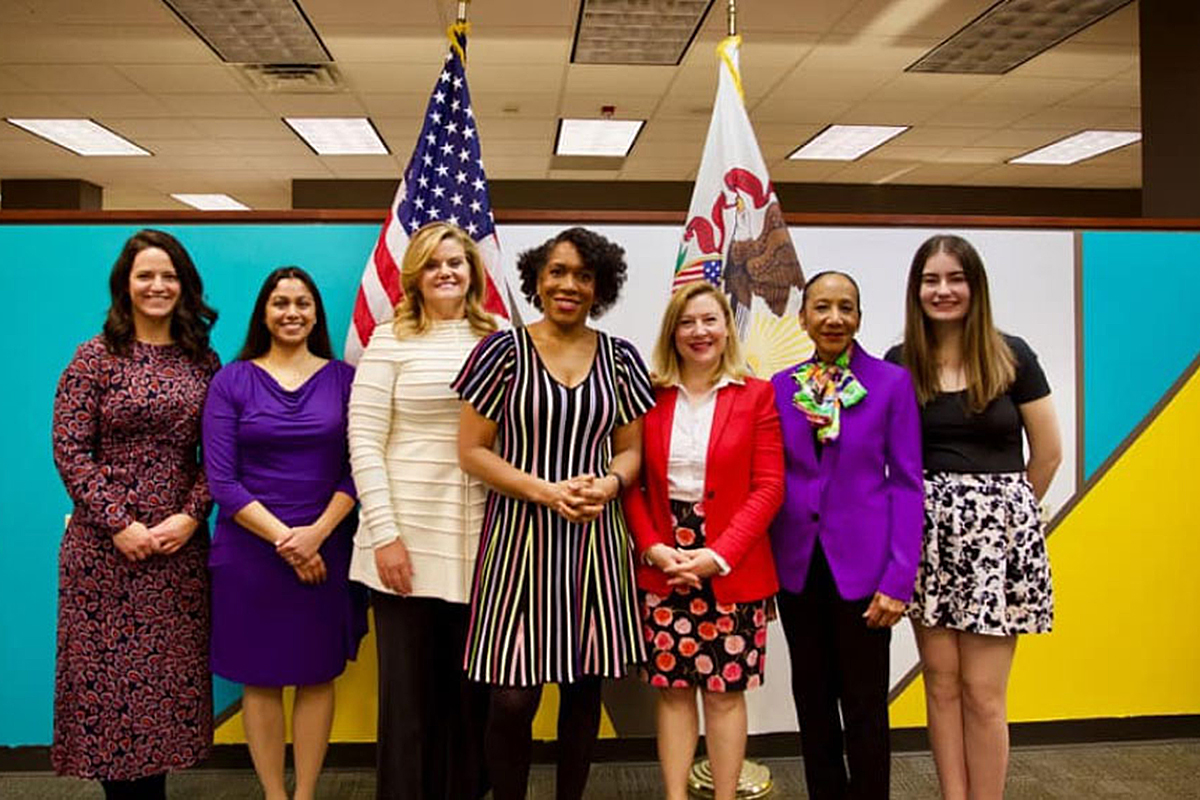
Collins calls for action on gender-based violence, economic opportunity, health care
SPRINGFIELD – Convened to study and recommend legislative solutions to systemic problems women face in all parts of life, the Illinois Council on Women and Girls issued its first report yesterday.
The report, available in full here, highlights the barriers women face under the law and makes 14 specific recommendations related to gender-based violence, academic and economic opportunity, leadership and inclusion, and health care.
Headed by Illinois Lt. Gov. Juliana Stratton, the council was first formed last year through a law sponsored by State Senator Jacqueline Collins (D-Chicago).
“The barriers women and girls face must be given names,” Collins said. “The entrenched systems that keep women out of the halls of power can only be cast aside by specific efforts to dismantle them. I am committed to using the recommendations laid out in this report as the basis for future legislation in the future. I thank the council for its efforts.”
The Illinois Council on Women and Girls’ report recommends actions be taken to:
- Improve efficiency for publicly funded crime laboratories to reduce rape kit backlogs.
- Create public awareness campaigns about gender-based violence, targeting veterans, people with disabilities, and LGBTQ+ communities.
- Provide localized accounts of the prevalence of gender-based violence across Illinois by collaborating with local governments.
- Ensure that elementary and secondary school students who are parents, expectant parents, or survivors of gender-based violence can safely stay in school, succeed academically, and complete their education.
- Empower girls and young women by creating opportunities for them to engage with the executive branch on issues important to their communities.
- Integrate efforts to better serve students and parents on Illinois military bases.
- Increase access to affordable childcare, especially for working women and women in school.
- Increase opportunities for trauma-informed services for college students who experience gender-based violence.
- Encourage the involvement of women and girls in STEAM (Science, Technology, Engineering, Arts, and Math) career pipelines by focusing on access for current and former youth in foster care, youth with disabilities, youth from LGBTQ+ communities, immigrants and refugees, and racially diverse groups.
- Promote understanding of how to engage government by using local youth advisory boards led by elected leaders.
- Encourage the expansion of internships targeting young women through partnerships between schools and high-growth industries.
- Expand access to postpartum health care coverage to help reduce disparities.
- Increase access to substance use and mental health services for pregnant and postpartum women to reduce rates of maternal morbidity.
- Highlight health care disparities by improving data collection.













 © 2026 Illinois Senate Democratic Caucus
© 2026 Illinois Senate Democratic Caucus